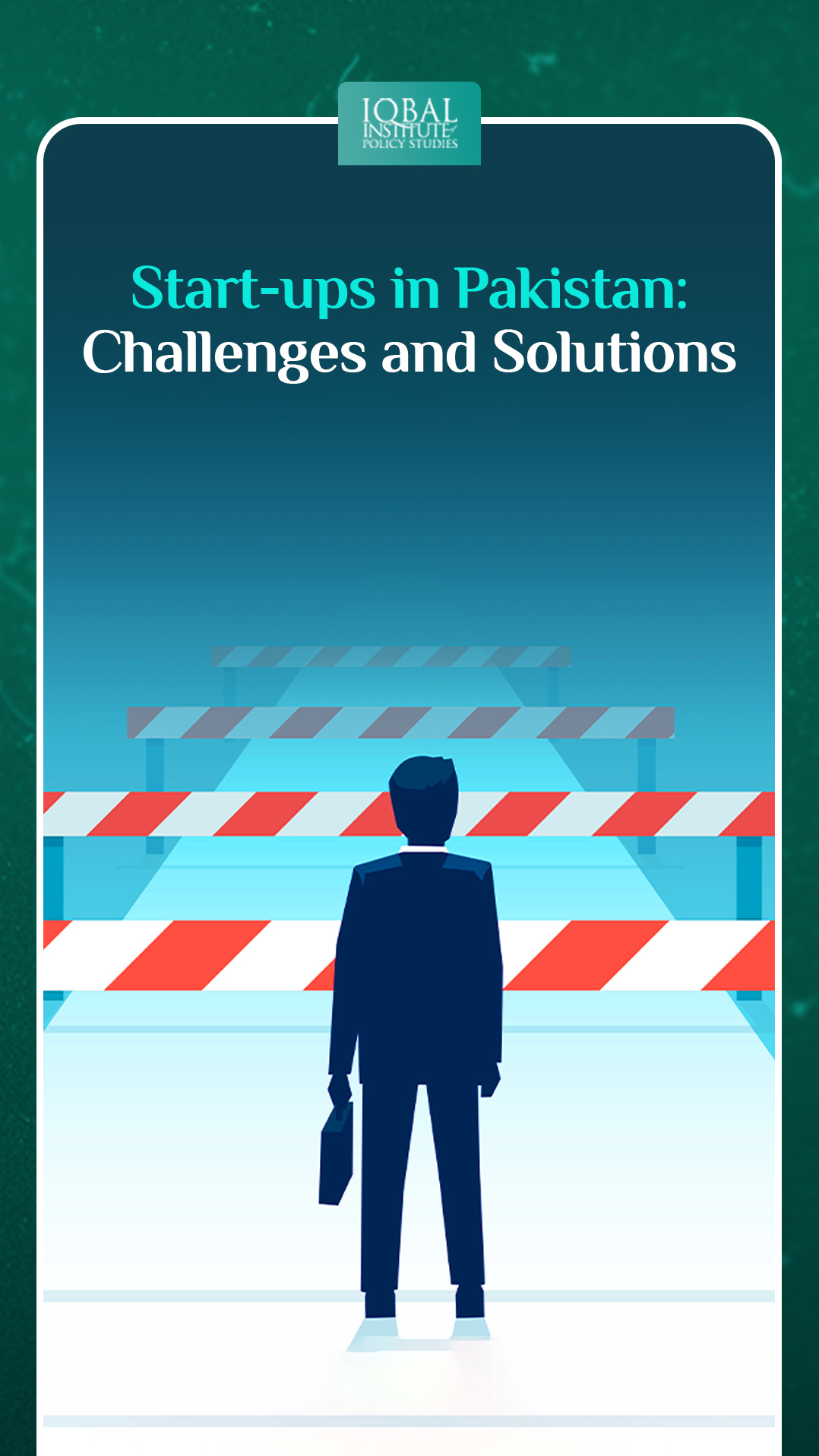Startup plays a crucial role in any country’s economic and social development. Improving the country’s business ecosystem is important because it brings innovation and new ideas to the marketplace. As per the study in the United States, Pakistan needs 1.3 million jobs, and startups have the potential to create new job opportunities. In Pakistan, Small and medium enterprises contribute 40% to the GDP and 26% to the exports (Khan, 2021).
Entrepreneurship is a great way to build the future of the country. The young people see a demand or a problem in the marketplace and introduce their business models. Sometimes, they like copying successful business ideas. However, starting a new business comes up with high risk. It requires increased funding from the venture and skilled workers with solid business models to survive.
Pakistan needs more startups, but 90% fail due to poor planning and strategies. As the study, 300 startups are launched every year, but only 10 per cent of them sustain. In Pakistan, the startup ecosystem increased before COVID, but after that, investment dried up. The startups cannot sustain themselves, and most have closed their operation.
Challenges
Lack of Knowledge
Many well-written proposals with brilliant ideas never move to the final stage because many entrepreneurs in Pakistan need proper training to run a successful business. They are lacking in technical and marketing knowledge. They must understand business planning, financial management, market research and other critical business tools and ideas. The main reason for the project’s failure is limited knowledge in that area or reliance on small-scale research, which often fails. The prospective entrepreneur should talk to successful businessmen about their work and learn lessons from them, as Pakistan’s market challenges newcomers. For instance, Swvl and other startups entered the market. However, they could not sustain themselves because lack of research, poor understanding of the regulatory and legal environment, monopoly of businessmen etc., and would not let them operate easily in the market. Hence, most of the new ventures shut down their operation in Pakistan.
Need for More Innovative Ideas
The lack and poor implementation of innovative ideas are also affecting the growth of startups. Many entrepreneurs try to copy and use the successful ideas that are earning profit in other businesses rather than developing new and unique ideas. Therefore, this duplication makes it difficult for them to cope with established players and attract customers. The main reason for the lack of innovation in Pakistan is the need for more research and development (R&D) activities. The country lacks training and education, urging more demand for innovative ideas.
Lack of Planning
To become more competitive and earn more profit, startups are making policies without planning. For instance, the package delivery startups claim to deliver the order in 10 minutes with the focus to deliver more than 2,000 orders per day from the same store without considering the limitation of the stores. To meet the demand, the managers keep changing the store location.
On the other hand, many startups that rely on the margins that the companies have for them face severe challenges to sustain. These margins are initially tiny and swell as the company grows and sells good volumes to convince manufacturers to give them better margins. According to a source in the industry, the margins from Unilever for retail stores can go as high as 15 to 18 % (Tahir, 2023).
Poor Infrastructure and Dearth of Resources
To make a business successful, it is requisite to have basic facilities such as fast internet connectivity, reliable electricity and suitable office space. Due to the adverse energy crisis in Pakistan, it is not easy to compete with developed countries. Currently, due to the energy shortage, 150 units of textile firms have been closed (The News, 2022). Besides, minimum credit facilities are unavailable for small and medium enterprises. To boost productivity, incubation and acceleration programmes play a crucial role. These programs can provide startups with resources. The implementation of incubation programmes in Pakistan is low due to budget constraints. Moreover, the private sectors are reluctant to invest in these programs because of high-risk returns.
Skilled Workforce Shortage
Pakistan needs a more skilled labour force to uplift the business’s productivity. The lack of skilled labour makes it challenging for startups to build and scale businesses. To improve the operations of industry, countries need well-performing labour. Due to a lack of adequate training institutions, modernised equipment, and poor work ethics, Pakistan’s labour productivity was $15,430 in 2018. At the same time, Indian labour force productivity is 20% higher, $18,565 (Hassan, 2019).
Regularity Barriers
The regulatory issues that startups face are the monopoly of a few businessmen and unclear regulations around business operations. These barriers make it difficult for startups to navigate the legal and regulatory landscape. Nonetheless, the inefficient legal frameworks, which consist of various processes and lack proper intellectual rights, pose significant challenges for startups. The current laws are inapt enough to save entrepreneurs’ rights and innovations, which turns into exploitation and discourages innovation.
Solutions
-
The government should support the entrepreneur ecosystem by establishing incubators and technology parks.
-
Startups should conduct regressive research into their business because it will help them make informed decisions and navigate the complex startup process.
-
There is a need for more resources and facilities to conduct R&D activities, which can be critical for developing new products and services and staying ahead of the competition.
-
It is essential to increase access to education and training programmes for entrepreneurs, provide resources and support for startups to help them conduct R&D activities, and create a more conducive cultural mindset that encourages innovation and entrepreneurship.
-
To improve the overall productivity of startups, there is a need for more access to experienced mentors and advisors who can provide guidance and support.
-
To gain instant revenue, startups need to hire qualified professionals for their businesses.
-
The government must work to address regulatory barriers and create a more conducive environment for business growth.
-
Government should revamp the legislative framework to improve the ease of doing business.
-
There is a dire need to provide loans in easy or interest-free instalments.
Conclusion
In Pakistan, most businesses are comprised of small and medium enterprises. However, inappropriate legislation, lack of training, innovation and supervision are affecting the growth of startups. This means that the business ecosystem in Pakistan faces many challenges that can lead to failure. To combat these challenges and increase the chances of achievement for startups, the country needs to develop a more supportive ecosystem that includes access to funding, mentorship, and a skilled workforce. Additionally, the government must work to address regulatory barriers, create a more conducive environment for business growth, and increase the number of incubation and acceleration programmes.



Leave a Reply